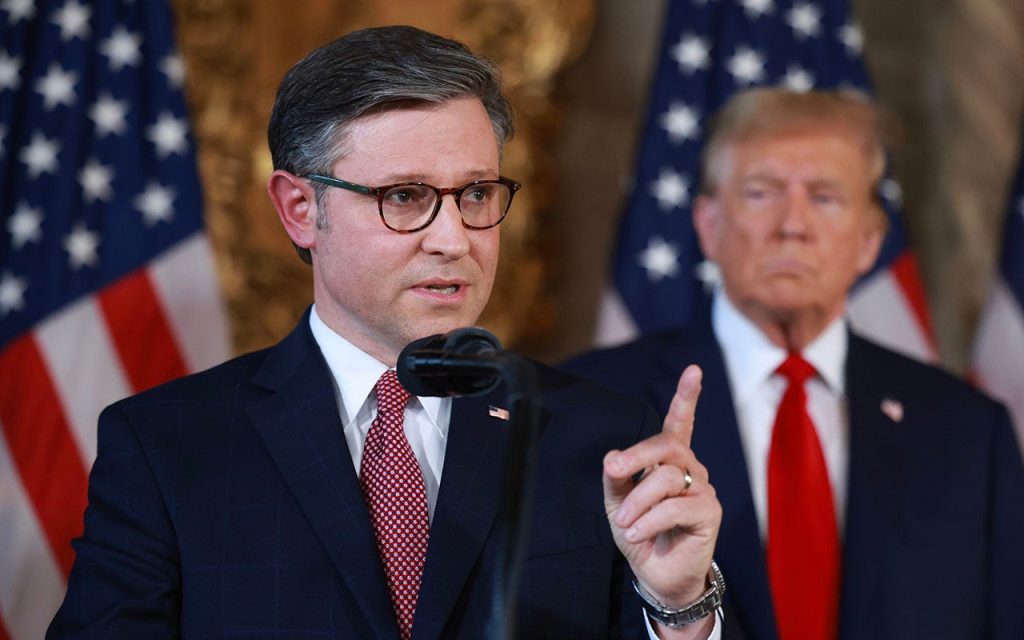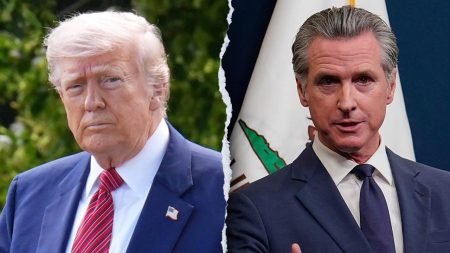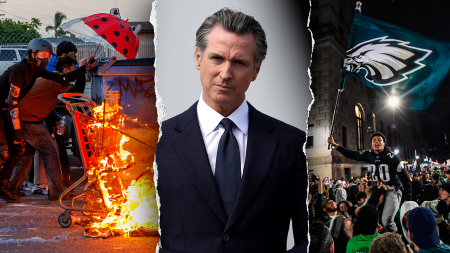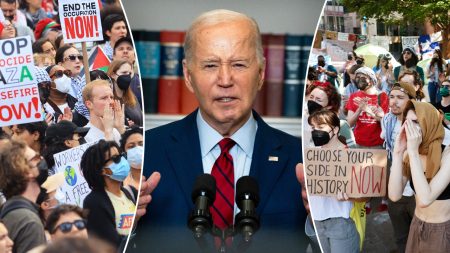The Political Landscape in the Aftermath of the 2024 Election: Trump’s Influence and the Future of the GOP
Donald Trump’s victory in the 2024 presidential election has significantly reshaped the political landscape, with his influence permeating both the Republican Party and the broader national discourse. His endorsement of Mike Johnson for Speaker of the House underscores his continued sway within the GOP, positioning Johnson as a key figure in advancing Trump’s agenda. This endorsement, framed around the need for immediate relief from the perceived destructive policies of the previous administration, highlights Trump’s continued focus on contrasting his policies with those of his predecessors. The emphasis on Johnson as a "good, hard working, religious man" further reinforces Trump’s appeal to his base, emphasizing values and personal characteristics alongside political positions. This endorsement signals a potential shift in the House leadership dynamics and the legislative priorities of the Republican Party, with the expectation of a more assertive pursuit of Trump’s policy objectives.
The contest for the House speakership is expected to be a fierce battle, showcasing the internal divisions within the Republican Party. While Trump’s endorsement carries significant weight, it also reveals the challenges facing the GOP in unifying its various factions. Figures like Representative Victoria Spartz, who demands assurances that Johnson "won’t sell us out to the swamp," embody a segment of the Republican base wary of establishment politics and seeking a more staunchly conservative leadership. This internal tension within the GOP, between those aligned with Trump’s populist agenda and those with more traditional conservative leanings, will likely continue to shape the party’s direction and its ability to effectively govern.
Beyond the immediate political maneuvering, Trump’s victory has set the stage for the 2026 midterm elections. His continued popularity within the Republican base positions the party for potential gains in both chambers of Congress. This perceived "homefield advantage" stems from Trump’s ability to mobilize his supporters and influence the political narrative. However, the success of this strategy will depend on the GOP’s ability to navigate internal divisions and present a unified front to the electorate. The upcoming midterm elections will serve as a critical test of Trump’s enduring influence and the GOP’s ability to capitalize on his popularity.
Remembering a President and Navigating a Changing World: Reflections on Jimmy Carter and Emerging Challenges
Amidst the current political tumult, the passing of former President Jimmy Carter offers a moment of reflection on a different era of American politics and leadership. Tributes poured in from across the political spectrum, highlighting Carter’s humanitarian work, his commitment to public service, and his impact on both domestic and international affairs. From transforming the airline industry to his post-presidency dedication to global health and peacemaking, Carter’s legacy extends far beyond his time in the Oval Office. The remembrance of his presidency, including the humorous anecdote of the "killer rabbit" incident, underscores the complexities and challenges faced by even well-intentioned leaders.
The international stage presents its own set of complexities, with figures like Elon Musk becoming increasingly entangled in global politics. Germany’s accusations of Musk interfering in their election highlight the growing influence of tech giants on the democratic process and the challenges posed by unregulated online platforms. This incident raises questions about the role of social media in shaping public opinion and the potential for manipulation and interference by powerful individuals and entities. The increasing intersection of technology and politics demands careful consideration and potentially new regulatory frameworks to safeguard democratic processes.
Domestically, a range of issues continues to dominate the political discourse. The debate over gun control, exemplified by Kentucky’s proposed bill holding parents accountable for children’s gun crimes, reflects ongoing societal divisions on this contentious issue. The discussion surrounding weight loss drugs, with Elon Musk’s admission of using Ozempic, highlights the complexities of health and body image in the public eye. The ongoing border crisis, with the tragic story of smugglers abandoning migrant children, underscores the human cost of immigration policy and the urgent need for comprehensive solutions. Finally, the debate over Diversity, Equity, and Inclusion (DEI) initiatives in education, with several states implementing bans or limitations, further exemplifies the ongoing culture wars and the politicization of educational institutions.
A Nation in Transition: Navigating Political Divisions and Societal Challenges
The confluence of these events – the aftermath of a presidential election, the passing of a former president, international tensions, and ongoing domestic debates – paints a picture of a nation in transition, grappling with complex issues and deep-seated divisions. The political landscape remains highly polarized, with Trump’s enduring influence shaping the Republican Party and the broader conservative movement. The challenges facing the incoming administration, from navigating international relations to addressing pressing domestic concerns, are substantial.
The public discourse continues to be fragmented, with differing perspectives on gun control, immigration, healthcare, and education. The role of technology in shaping public opinion and influencing political processes is increasingly scrutinized. The ongoing border crisis and the humanitarian challenges it presents demand urgent attention and solutions. As the nation moves forward, the ability to bridge divides, find common ground, and address these critical issues will be essential for the future of American democracy. The transition to a new era of leadership requires thoughtful engagement with these complexities and a commitment to finding solutions that benefit all Americans.
The rapid pace of change and the constant influx of information in the digital age further complicate these challenges. The proliferation of misinformation and the erosion of trust in traditional institutions require a renewed focus on critical thinking and media literacy. The ability to discern fact from fiction and engage in constructive dialogue across differing viewpoints is more critical than ever. As the nation navigates this complex and rapidly evolving landscape, the ability to adapt, innovate, and work together will be essential for successfully addressing the challenges and opportunities that lie ahead.
The legacy of leaders like Jimmy Carter, with his focus on service and humanitarianism, can offer inspiration and guidance in these tumultuous times. The challenges facing the current generation of leaders are significant, but the opportunity to shape a more just and equitable future is within reach. By embracing the values of compassion, empathy, and collaboration, the nation can move forward with hope and purpose, building a society that reflects the best ideals of American democracy. The path forward will undoubtedly be challenging, but by working together and learning from the past, the nation can navigate these complexities and build a brighter future for all.
The political landscape remains highly polarized, with Trump’s enduring influence shaping the Republican Party and the broader conservative movement. The challenges facing the incoming administration, from navigating international relations to addressing pressing domestic concerns, are substantial.
The public discourse continues to be fragmented, with differing perspectives on gun control, immigration, healthcare, and education. The role of technology in shaping public opinion and influencing political processes is increasingly scrutinized. The ongoing border crisis and the humanitarian challenges it presents demand urgent attention and solutions. As the nation moves forward, the ability to bridge divides, find common ground, and address these critical issues will be essential for the future of American democracy. The transition to a new era of leadership requires thoughtful engagement with these complexities and a commitment to finding solutions that benefit all Americans.










